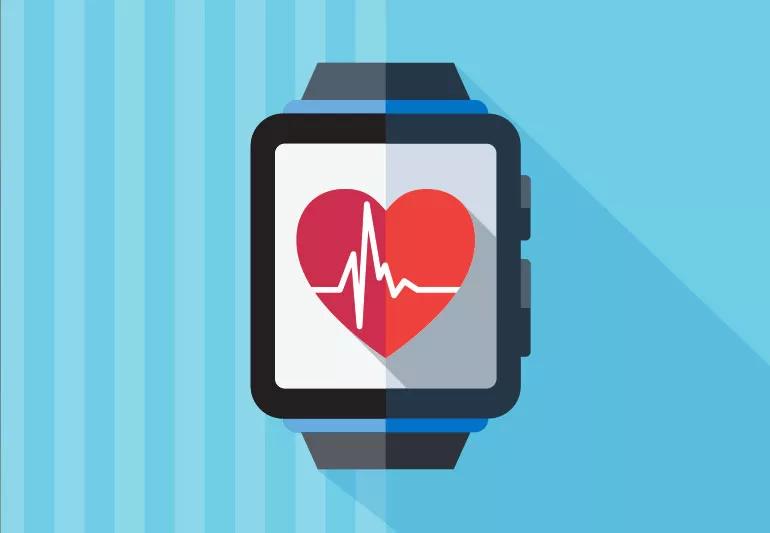This combo could signal a heart rhythm problem

Image content: This image is available to view online.
View image online (https://assets.clevelandclinic.org/transform/ce6c9870-cbfe-4ac3-a3b0-d3691cd637c2/lowBP-highHeartRate-1155183312-770x553_jpg)
Smart watch displaying heart rate monitoring capabilities
You may be ecstatic that you finally got your blood pressure lowered, only to notice your heart seems to be racing — ALL THE TIME. So what gives when you successfully hit the magic number of <120/<80 mm, but your heart rate remains high?
Advertisement
Cleveland Clinic is a non-profit academic medical center. Advertising on our site helps support our mission. We do not endorse non-Cleveland Clinic products or services. Policy
Heart rhythm specialist Tyler Taigen, MD, says sometimes this is normal and sometimes it’s not.
Sometimes blood pressure and high heart rate occurs momentarily. For example, Dr. Taigen explains, when we stand up:
However, that phenomenon is short-lived. When the heart rate stays consistently high while blood pressure is low, there may be something problematic going on.
When the heart’s electrical circuits aren’t properly functioning, the result can be a high heart rate coupled with low blood pressure, Dr. Taigen explains.
“When the heart has a fast, abnormal rhythm — anything over 100, but closer to 160 beats per minute — it can’t adequately fill with blood. The chaotic electrical signaling causes the heart muscles to be out of sync between the top and bottom chambers,” he says. “Less efficiency in the heart means less blood is pumping through the body — which means low blood pressure.”
Advertisement
You may not know your heart rhythm is pacing more like a rabbit than a tortoise. But all that racing and ineffective blood pumping result in oxygen-deprived organs and tissues. It’s worth a trip to the doctor when you:
When this happens, electrophysiologists first try and slow the heart rate using medicines, Dr. Taigen says. “But these medicines, known as beta-blockers or calcium channel blockers, can also drop the blood pressure,” he notes. “Quite often, there’s not much room for blood pressure to go lower.”
If your blood pressure is too low for medications, a procedure called direct current cardioversion can get the rhythm back to normal.
“With this procedure, we put pads on the front and back of the chest and sedate the patient for a minute or two,” Dr. Taigen explains. “When they are asleep, we deliver a shock that stops the heart from beating irregularly, so the natural heartbeat resumes.”
Once the heart rhythm is back to normal, an electrophysiologist determines if a more permanent treatment is needed. These could include:
Heart rhythm problems that affect the upper heart chamber (atrium) can put you at an increased risk for stroke, heart failure or death. Here’s why:
If you’re diagnosed with an irregular heart rhythm, you may need to take blood-thinning medications, plus one of the treatments above, to decrease your risk of stroke. Your doctor can help you get the right care to keep everything steady and stable — so the only time your heart is racing is while you’re watching “Stranger Things.”
Advertisement

Delivered every Tuesday!
Sign up for our Health Essentials emails for expert guidance on nutrition, fitness, sleep, skin care and more
Learn more about our editorial process.
Advertisement
This technology can benefit your workouts by helping you hit your target heart rate, resulting in better overall health and wellness
A resting heart rate below 35–40 beats per minute or over 100 beats per minute may be cause for concern
Your heart rate naturally slows down while you sleep, but lower numbers aren’t always concerning
Both are related to your cardiovascular system, and both can impact the other
60 to 100 beats per minute is ‘normal,’ but you can still be healthy outside that range
Bradycardia, or a low heart rate, is more likely as you age — and could be a sign of health issues
Research shows the accuracy of wrist-worn heart monitors varies
An ideal blood pressure is less than 120 mm Hg systolic and less than 80 mm Hg diastolic
Type 2 diabetes isn’t inevitable with these dietary changes
Applying a hot or cold compress can help with pain
Pump up your iron intake with foods like tuna, tofu and turkey